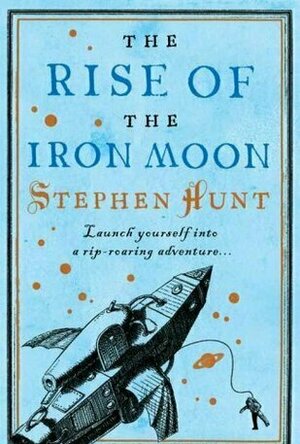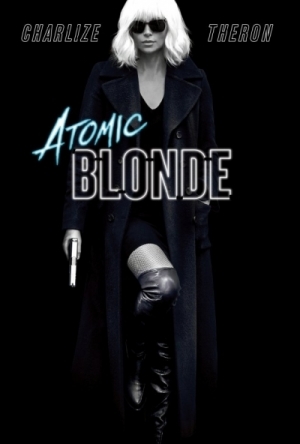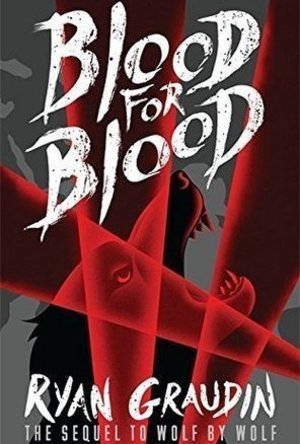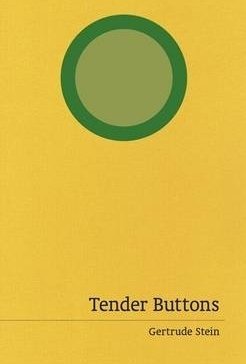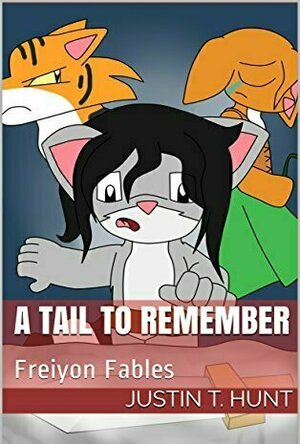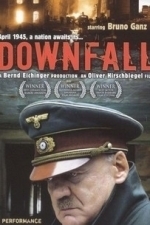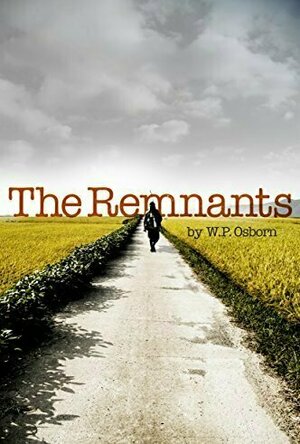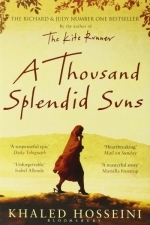Search
Search results
Phil Leader (619 KP) rated The Rise of the Iron Moon (Jackelian #3) in Books
Nov 25, 2019
This book looked interesting so I picked it up. I'd not heard of Stephen Hunt or this series but the premise intrigued me.
Although this is the third book of the series and there are plenty of references to events that must take place in the previous books, and despite the writing being immersive rather than explanatory, I found it easy to get into the story.
The world is very interesting. I have read other novels set in a faux Victorian Steampunk-like world but nothing like this. This is like an alternative history, extremely divergeant from ours but with enough similarities that the combination is quite striking.
For example there was a civil war in the past which parliament won, as in the 'real' British history. However all of the royals have been locked up ever since in the Royal Breeding House - kept as figureheads under constant house arrest and threat of execution at the whim of parliament to appease the masses.
There are also countries ruled by thinking, steam driven machines. Others beneath the waves or living strictly by some political principal.
However the world is under threat. All the countries are being slowly invaded from the North by a very aggressive foe. Under attack the land of Jackals itself calls on its heroes to save the day. Purity Blake, one of the inmates of the Royal Breeding House. Molly Templar, writer of penny dreadful science fiction stories and sometimes defender of the land. Coppertracks, a machine life steam man and scientist. Their companions must overcome impossible odds and put aside the enmity between nations to fight off the attackers. Against all the odds, can they succeed?
The book is a little slow to start up, as the characters are introduced in their diverse environments. But slowly the threads are drawn together and each play their part in the fight. And as they begin to weave into the plot the pace quickens. The story twists and turns, always astonishing in its concept and direction.
The outstanding part of this book is the imagination that has gone into it. Nearly everything is completely different from our world and yet it ties together convincingly into a land both of industry and grime, poverty and privilege but also of very real myth and legend.
The ending is a little bit Deus Ex Machina but really this fits in with the tone quite well and at least keeps the pace up in the final pages. There are enough wonderful and fantastic ideas let loose to wander around in this book for several novels.
Definitely a recommended book. I now need to search out the first book - The Court Of The Air - so I can find out what has happened to the characters before.
Although this is the third book of the series and there are plenty of references to events that must take place in the previous books, and despite the writing being immersive rather than explanatory, I found it easy to get into the story.
The world is very interesting. I have read other novels set in a faux Victorian Steampunk-like world but nothing like this. This is like an alternative history, extremely divergeant from ours but with enough similarities that the combination is quite striking.
For example there was a civil war in the past which parliament won, as in the 'real' British history. However all of the royals have been locked up ever since in the Royal Breeding House - kept as figureheads under constant house arrest and threat of execution at the whim of parliament to appease the masses.
There are also countries ruled by thinking, steam driven machines. Others beneath the waves or living strictly by some political principal.
However the world is under threat. All the countries are being slowly invaded from the North by a very aggressive foe. Under attack the land of Jackals itself calls on its heroes to save the day. Purity Blake, one of the inmates of the Royal Breeding House. Molly Templar, writer of penny dreadful science fiction stories and sometimes defender of the land. Coppertracks, a machine life steam man and scientist. Their companions must overcome impossible odds and put aside the enmity between nations to fight off the attackers. Against all the odds, can they succeed?
The book is a little slow to start up, as the characters are introduced in their diverse environments. But slowly the threads are drawn together and each play their part in the fight. And as they begin to weave into the plot the pace quickens. The story twists and turns, always astonishing in its concept and direction.
The outstanding part of this book is the imagination that has gone into it. Nearly everything is completely different from our world and yet it ties together convincingly into a land both of industry and grime, poverty and privilege but also of very real myth and legend.
The ending is a little bit Deus Ex Machina but really this fits in with the tone quite well and at least keeps the pace up in the final pages. There are enough wonderful and fantastic ideas let loose to wander around in this book for several novels.
Definitely a recommended book. I now need to search out the first book - The Court Of The Air - so I can find out what has happened to the characters before.
Movie Metropolis (309 KP) rated Atomic Blonde (2017) in Movies
Jun 10, 2019
Say hello to Mrs. John Wick
David Leitch is one of the most exciting film-makers of the current crop of directors working today. His brilliant John Wick reignited Keanu Reeves’ career in spectacular fashion and he’s worked behind-the-scenes on films like Captain America: Civil War and Jurassic World.
Just this year he signed on to direct Deadpool 2 after Tim Miller’s sudden departure. In the meantime, he’s treating us to another adults-only thriller, Atomic Blonde. But is this Charlize Theron-led vehicle as good as his previous work?
Sensual and savage, Lorraine Broughton (Charlize Theron) is the most elite spy in MI6, an agent willing to use all her skills to stay alive during impossible missions. With the Berlin Wall ready to crumble, she travels into the middle of the city to retrieve a dossier and take down an espionage ring. Once there, she teams up with an embedded station chief (James McAvoy) to navigate her way through the deadliest game of spies.
Charlize Theron is fast-becoming one of Hollywood’s most bankable stars after decent turns in Fast & Furious 8 and Mad Max: Fury Road. In Atomic Blonde this is no exception. She commands the screen in each and every frame, oozing class and showing the world she is a first-class action superstar.
The rest of the cast are also exquisite. James McAvoy can do no wrong this year after his out-of-this-world performance in Split, and his David Percival here is fleshed out, well-written and beautifully acted. Elsewhere, John Goodman and Toby Jones add even more prowess to proceedings.
Add to this some stunning cinematography and you’ve got a recipe for success. Atomic Blonde relishes the era in which it is presented with a magnificent soundtrack and beautiful direction. Leitch makes the film feel very much alive, with brutally realistic action shot without needless shaky cam or over-the-top scoring.
Unfortunately, the story is less successful. If Theron is the living, beating heart of Atomic Blonde, the script nearly strangles her. It is nearly impossible to truly understand what is happening on screen as the plot throws more twists and turns at the audience than Spaghetti Junction. Ordinarily, this would be great, but here it’s distracting and nonsensical.
Nevertheless, this is a vastly entertaining film, very much in the same vein of John Wick. In fact, it’d be fantastic if we could see these two characters brought together in a crossover of epic proportions.
Overall, David Leitch hasn’t quite recaptured the success of his first feature film but has managed to craft a highly stylised and quick-moving thriller that feels very real and utilises its exceptional cast incredibly well, with Charlize Theron being an absolute delight. It’s just unfortunate the plot is a bit of a damp squib.
https://moviemetropolis.net/2017/08/10/atomic-blonde-review-say-hello-to-mrs-john-wick/
Just this year he signed on to direct Deadpool 2 after Tim Miller’s sudden departure. In the meantime, he’s treating us to another adults-only thriller, Atomic Blonde. But is this Charlize Theron-led vehicle as good as his previous work?
Sensual and savage, Lorraine Broughton (Charlize Theron) is the most elite spy in MI6, an agent willing to use all her skills to stay alive during impossible missions. With the Berlin Wall ready to crumble, she travels into the middle of the city to retrieve a dossier and take down an espionage ring. Once there, she teams up with an embedded station chief (James McAvoy) to navigate her way through the deadliest game of spies.
Charlize Theron is fast-becoming one of Hollywood’s most bankable stars after decent turns in Fast & Furious 8 and Mad Max: Fury Road. In Atomic Blonde this is no exception. She commands the screen in each and every frame, oozing class and showing the world she is a first-class action superstar.
The rest of the cast are also exquisite. James McAvoy can do no wrong this year after his out-of-this-world performance in Split, and his David Percival here is fleshed out, well-written and beautifully acted. Elsewhere, John Goodman and Toby Jones add even more prowess to proceedings.
Add to this some stunning cinematography and you’ve got a recipe for success. Atomic Blonde relishes the era in which it is presented with a magnificent soundtrack and beautiful direction. Leitch makes the film feel very much alive, with brutally realistic action shot without needless shaky cam or over-the-top scoring.
Unfortunately, the story is less successful. If Theron is the living, beating heart of Atomic Blonde, the script nearly strangles her. It is nearly impossible to truly understand what is happening on screen as the plot throws more twists and turns at the audience than Spaghetti Junction. Ordinarily, this would be great, but here it’s distracting and nonsensical.
Nevertheless, this is a vastly entertaining film, very much in the same vein of John Wick. In fact, it’d be fantastic if we could see these two characters brought together in a crossover of epic proportions.
Overall, David Leitch hasn’t quite recaptured the success of his first feature film but has managed to craft a highly stylised and quick-moving thriller that feels very real and utilises its exceptional cast incredibly well, with Charlize Theron being an absolute delight. It’s just unfortunate the plot is a bit of a damp squib.
https://moviemetropolis.net/2017/08/10/atomic-blonde-review-say-hello-to-mrs-john-wick/
Hazel (1853 KP) rated Blood for Blood (Wolf By Wolf #2) in Books
Dec 17, 2018
<i>This eBook was provided by the publisher via NetGalley in exchange for an honest review </i>
Ryan Graudin blew readers away with her alternate historical novel <i>Wolf by Wolf</i>. Now it is time to conclude the imaginative narrative with the highly anticipated sequel, <i>Blood for Blood. </i>Continuing from the precise moment Yael pulled the trigger on the Führer’s doppelgänger, the reader is thrown into a lively story of twists and turns, where danger lives around every corner.
To recap, it is 1956 and Hitler has won the war. Germany, or Germania, is ruling over Europe and many countries in Asia and Africa. Yael is a Jewish girl who a doctor experimented on whilst she was detained in a concentration camp. As a result of the brutal medical treatment, Yael is a successful result of the Doppelgänger Project – she can now change her physical appearance and anatomy at will.<i> Wolf by Wolf</i> focused on Yael and the resistance’s attempt to win a prestigious motorcycle race in order to get close to the Führer and end his life. As it turns out, Yael is not the only person with this skin shifting ability.
On the run with the entire world knowing her secret, Yael is desperate to make contact with the resistance leaders and continue with their plot to assassinate Hitler. However, unable to leave innocent people to suffer at the hands of the National Socialists, Yael ends up being accompanied and hindered by two Aryan boys, Luka and Felix. Yet with no way of knowing who can be trusted, Yael is taking a fatal risk by helping others instead of saving herself.
Despite circumstances, the blossoming romance that began to advance toward the end of the first book continues to feature in <i>Blood for Blood</i> as characters begin to rely on and trust each other. Nonetheless, constant plot developments obstruct all thoughts of a happy ending. Clever twists and gradually emerging truths prevent any opportunity for rest or safety.
<i>Wolf by Wolf </i>was an exciting, new concept for young adult readers, answering a “what if” question about the second world war. Yet the historical setting – albeit fictional – was impeded by the focus on the Axis Tour as characters raced from Germania to Tokyo. In contrast, <i>Blood for Blood</i> leaves all distractions behind, giving full attention to the life and danger under Hitler’s dictatorship. Despite Germany/Germania’s triumphant win, war is still raging throughout Europe. Anyone not meeting the Aryan description is at risk of death or deportment. Strictly speaking, the situation described must look similar, if not the same, as the true result of Nazi ruling.
Ryan Graudin is a formidable writer with the ability to make fiction seem like reality. Despite the added science fiction twist, the imaginative scenario is so well researched and planned that it becomes almost believable. Graudin comes at the story from so many directions, evidencing the effort put into creating the thrilling plot. It is one thing to be able to string words together, but to make them come alive it takes a genius.
<i>Blood for Blood</i> is by far the better of the two novels, making it the perfect conclusion to a fantastic two-part story. Beginning with explosive action and not stopping until its heart-wrenching conclusion, <i>Blood for Blood</i> will satisfy readers of all ages and genres. Those who have read <i>Wolf by Wolf</i> definitely must get their hands on this amazing sequel. You will not be disappointed.
Ryan Graudin blew readers away with her alternate historical novel <i>Wolf by Wolf</i>. Now it is time to conclude the imaginative narrative with the highly anticipated sequel, <i>Blood for Blood. </i>Continuing from the precise moment Yael pulled the trigger on the Führer’s doppelgänger, the reader is thrown into a lively story of twists and turns, where danger lives around every corner.
To recap, it is 1956 and Hitler has won the war. Germany, or Germania, is ruling over Europe and many countries in Asia and Africa. Yael is a Jewish girl who a doctor experimented on whilst she was detained in a concentration camp. As a result of the brutal medical treatment, Yael is a successful result of the Doppelgänger Project – she can now change her physical appearance and anatomy at will.<i> Wolf by Wolf</i> focused on Yael and the resistance’s attempt to win a prestigious motorcycle race in order to get close to the Führer and end his life. As it turns out, Yael is not the only person with this skin shifting ability.
On the run with the entire world knowing her secret, Yael is desperate to make contact with the resistance leaders and continue with their plot to assassinate Hitler. However, unable to leave innocent people to suffer at the hands of the National Socialists, Yael ends up being accompanied and hindered by two Aryan boys, Luka and Felix. Yet with no way of knowing who can be trusted, Yael is taking a fatal risk by helping others instead of saving herself.
Despite circumstances, the blossoming romance that began to advance toward the end of the first book continues to feature in <i>Blood for Blood</i> as characters begin to rely on and trust each other. Nonetheless, constant plot developments obstruct all thoughts of a happy ending. Clever twists and gradually emerging truths prevent any opportunity for rest or safety.
<i>Wolf by Wolf </i>was an exciting, new concept for young adult readers, answering a “what if” question about the second world war. Yet the historical setting – albeit fictional – was impeded by the focus on the Axis Tour as characters raced from Germania to Tokyo. In contrast, <i>Blood for Blood</i> leaves all distractions behind, giving full attention to the life and danger under Hitler’s dictatorship. Despite Germany/Germania’s triumphant win, war is still raging throughout Europe. Anyone not meeting the Aryan description is at risk of death or deportment. Strictly speaking, the situation described must look similar, if not the same, as the true result of Nazi ruling.
Ryan Graudin is a formidable writer with the ability to make fiction seem like reality. Despite the added science fiction twist, the imaginative scenario is so well researched and planned that it becomes almost believable. Graudin comes at the story from so many directions, evidencing the effort put into creating the thrilling plot. It is one thing to be able to string words together, but to make them come alive it takes a genius.
<i>Blood for Blood</i> is by far the better of the two novels, making it the perfect conclusion to a fantastic two-part story. Beginning with explosive action and not stopping until its heart-wrenching conclusion, <i>Blood for Blood</i> will satisfy readers of all ages and genres. Those who have read <i>Wolf by Wolf</i> definitely must get their hands on this amazing sequel. You will not be disappointed.

ConceptIQ : Human Geography
Education and Games
App
Would you like to have fun, while testing your knowledge of Human Geography. Would you like to...
Dana (24 KP) rated Tender Buttons in Books
Mar 23, 2018
This book of poetry is chaotic, at best. But that does not mean it is without meaning or cohesion. Through its chaos, the story emerges in little hints and connections that track and follow the speaker through their thought processes in each of the sections of the book: Objects, Food, and Rooms.
I don't normally enjoy modernist poetry much because I feel it tries too hard to be something it is not. It tries to solve problems it cannot, but I have enjoyed this book a lot. Instead of always trying to solve problems, it states how it is. The problems are still there, the chaos is still there, but there is still a sense of peace at what the world is. The speaker is an ordinary person doing ordinary things, thinking about a world that has gone to shit, and that is really relatable.
There is a lot of attention to color in this collection. In the first section, there was a focus on Red and Yellow. In the second, coal is a constant. The colors represent the changing times, the coal especially. Red, the color of blood and war. Yellow, the color of change, and illness. The war had become an illness that had spread across Europe and eventually, the world.
I love how the style is not really a poetic style. Instead it is written in a prose form, but not as a coherent story with a plot line. I appreciate how Stein is creating and experimenting with different styles of writing to try to convey what she wants to.
In the section Objects, there was a quote that I very much liked because I felt like it summed up how that section had been flowing, for me at least. "Book was there, it was there. Book was there. Stop it, stop it, it was a cleaner, a wet cleaner and it was not where it was wet, it was not high, it was directly placed back, not back again, back, it was returned, it was needless, it put a bank, a bank when, a bank care." (30) This quote is showing the chaos of the mind, the disruptions of how it thinks when trying to focus or process what is happening to it. This is how many people's thoughts may have seemed during and after the two World Wars, something Modernist literature and poetry often brings up.
"There is coagulation in cold and there is none in prudence. Something is preserved and the evening is long and the colder spring has sudden shadows in a sun." (40) I like this quotation from the second section, Food, because it acknowledges that even in a time of rebirth, there is still coldness and death. There are shadows in Spring because it is acknowledging the death that had to happen for the rebirth to occur. The "coagulation" can be a congregation of people when the times get tough. When it is "cold" people come together, but in times of prudence, or in times of happiness and peace, people do not feel the need to come together. There is a self-isolation that occurs in the good times.
"A sentence of vagueness that is violence is authority and a mission and stumbling and also certainly also a prison. Calmness, calm beside the plate and in way in. There is no turn in terror. There is no volume in sound." (40) In this section, there it shows that you cannot control the world. There will always be chaos and pain and violence, but you have to learn how to live through it and survive because if you do not, you will be left in your pain with no way out.
"This shows the disorder, it does, it shows more likeness than anything else, it shows the single mind that directs an apple. All the coats have a different shape, that does not mean that they differ in color, it means a union between use and exercise and a horse." (67) This quote shows the reason and necessity of the poem. Like I said before, this book is chaotic to show the connections in chaos. It is a portrayal of the mind in a chaotic state. Everything is able to be connected because it is all from one mind and person.
Overall, I really enjoyed reading this book. I thought it was very relevant to today, even though it was written over one hundred years ago. I recommend that you read this, even if you are not really in to modernist writing because, even though it is confusing at first, once you start thinking about it, it becomes very poignant and interesting.
I don't normally enjoy modernist poetry much because I feel it tries too hard to be something it is not. It tries to solve problems it cannot, but I have enjoyed this book a lot. Instead of always trying to solve problems, it states how it is. The problems are still there, the chaos is still there, but there is still a sense of peace at what the world is. The speaker is an ordinary person doing ordinary things, thinking about a world that has gone to shit, and that is really relatable.
There is a lot of attention to color in this collection. In the first section, there was a focus on Red and Yellow. In the second, coal is a constant. The colors represent the changing times, the coal especially. Red, the color of blood and war. Yellow, the color of change, and illness. The war had become an illness that had spread across Europe and eventually, the world.
I love how the style is not really a poetic style. Instead it is written in a prose form, but not as a coherent story with a plot line. I appreciate how Stein is creating and experimenting with different styles of writing to try to convey what she wants to.
In the section Objects, there was a quote that I very much liked because I felt like it summed up how that section had been flowing, for me at least. "Book was there, it was there. Book was there. Stop it, stop it, it was a cleaner, a wet cleaner and it was not where it was wet, it was not high, it was directly placed back, not back again, back, it was returned, it was needless, it put a bank, a bank when, a bank care." (30) This quote is showing the chaos of the mind, the disruptions of how it thinks when trying to focus or process what is happening to it. This is how many people's thoughts may have seemed during and after the two World Wars, something Modernist literature and poetry often brings up.
"There is coagulation in cold and there is none in prudence. Something is preserved and the evening is long and the colder spring has sudden shadows in a sun." (40) I like this quotation from the second section, Food, because it acknowledges that even in a time of rebirth, there is still coldness and death. There are shadows in Spring because it is acknowledging the death that had to happen for the rebirth to occur. The "coagulation" can be a congregation of people when the times get tough. When it is "cold" people come together, but in times of prudence, or in times of happiness and peace, people do not feel the need to come together. There is a self-isolation that occurs in the good times.
"A sentence of vagueness that is violence is authority and a mission and stumbling and also certainly also a prison. Calmness, calm beside the plate and in way in. There is no turn in terror. There is no volume in sound." (40) In this section, there it shows that you cannot control the world. There will always be chaos and pain and violence, but you have to learn how to live through it and survive because if you do not, you will be left in your pain with no way out.
"This shows the disorder, it does, it shows more likeness than anything else, it shows the single mind that directs an apple. All the coats have a different shape, that does not mean that they differ in color, it means a union between use and exercise and a horse." (67) This quote shows the reason and necessity of the poem. Like I said before, this book is chaotic to show the connections in chaos. It is a portrayal of the mind in a chaotic state. Everything is able to be connected because it is all from one mind and person.
Overall, I really enjoyed reading this book. I thought it was very relevant to today, even though it was written over one hundred years ago. I recommend that you read this, even if you are not really in to modernist writing because, even though it is confusing at first, once you start thinking about it, it becomes very poignant and interesting.
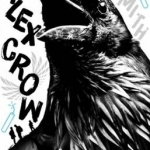
The Alex Crow
Book
From the critically acclaimed author of cult teen novel Grasshopper Jungle, Andrew Smith, comes a...
Night Reader Reviews (683 KP) rated Freiyon Fables: A Tail to Remember in Books
Jan 9, 2020
Honest Review for Free Copy of Book
Freiyon Fables: Tail to Remember by Justin Hunt was a book that I could only compare to one other book and that would be Chronicles of Narnia by C. S. Lewis. The Prologue promises an amazing tale, yet I feel as if the book doesn't quite live up to it. So even though I compare it to Narnia in style it is nothing like it when it comes to the actual material. The complete book itself is separated into three smaller books (or parts) that is then spread out into chapters.
In A Tail to Remember a squirrel by the name of Micklang escapes from a zoo and in the process is electrocuted, giving his tail a lightning-bolt shape. He then falls into another world in an Alice in Wonderland – down the rabbit hole style. In this new world, Micklang receives dreams about his warrior-self telling hi how to become that version of himself. During his journey, Micklang makes some surprising new friends and is reunited with some he has met before in the human world. It is with these friends that Micklang travels this new world, mapping it out.
At one point Micklang comes across an island where his traveling companions are captured and must rescue them before their captors harm them. Then after abandoning ship in a bad storm Micklang finds himself on yet another island, but this one is home to only other lightning-tail animals. Towards the end, Micklang goes back to one of the first islands that he visited in this new world, now called Freiyon. It is there that Micklang and his friends fight in the first battle in a war between The Grabbers and King Karel. It is during this battle that Micklang’s story ends but it is not the end of the stories about Freiyon. This is because a little human boy is told about Freiyon by his mother and decides it is time for him to visit this land of talking animals.
What I liked best about this book is that it is a rare occasion when I can honestly say that the ending, specifically the Epilogue is my favorite part. The epilogue tied the entire story together with the prologue when frankly I originally was confused about how it all connected. This actually redeemed the entire book in some ways. What I did not like was that the talking animals and being in a different world or realm gave the book a Chronicles of Narnia feel. Normally that would be a good thing but in this case, the writing style felt simplified and rushed at the same time. Also, this book felt like it was intended for children up until book three. In Book Three: The Switch Between Stories the phrases “What the HELL” and “how the HELL” were both used and that doesn't feel kid-friendly.
It was hard for me to pick a target audience for this book. My best guess would be for early middle school students and late elementary students, age-wise anyway. This is because the length might make it difficult for some elementary students (and some parents may not be thrilled about all the violence, who knows). Yet the simplified writing style may (or may not) appeal to older readers. Most likely it would be dry and boring for anyone out of middle school. That being said I rate this book a 2 out of 4. This is because this story falls in that dangerous zone between being simple enough for young readers and having just enough detail to feel rushed. The action moves from one major event to another without much of a break in between yet the story is still interesting
https://www.facebook.com/nightreaderreviews
In A Tail to Remember a squirrel by the name of Micklang escapes from a zoo and in the process is electrocuted, giving his tail a lightning-bolt shape. He then falls into another world in an Alice in Wonderland – down the rabbit hole style. In this new world, Micklang receives dreams about his warrior-self telling hi how to become that version of himself. During his journey, Micklang makes some surprising new friends and is reunited with some he has met before in the human world. It is with these friends that Micklang travels this new world, mapping it out.
At one point Micklang comes across an island where his traveling companions are captured and must rescue them before their captors harm them. Then after abandoning ship in a bad storm Micklang finds himself on yet another island, but this one is home to only other lightning-tail animals. Towards the end, Micklang goes back to one of the first islands that he visited in this new world, now called Freiyon. It is there that Micklang and his friends fight in the first battle in a war between The Grabbers and King Karel. It is during this battle that Micklang’s story ends but it is not the end of the stories about Freiyon. This is because a little human boy is told about Freiyon by his mother and decides it is time for him to visit this land of talking animals.
What I liked best about this book is that it is a rare occasion when I can honestly say that the ending, specifically the Epilogue is my favorite part. The epilogue tied the entire story together with the prologue when frankly I originally was confused about how it all connected. This actually redeemed the entire book in some ways. What I did not like was that the talking animals and being in a different world or realm gave the book a Chronicles of Narnia feel. Normally that would be a good thing but in this case, the writing style felt simplified and rushed at the same time. Also, this book felt like it was intended for children up until book three. In Book Three: The Switch Between Stories the phrases “What the HELL” and “how the HELL” were both used and that doesn't feel kid-friendly.
It was hard for me to pick a target audience for this book. My best guess would be for early middle school students and late elementary students, age-wise anyway. This is because the length might make it difficult for some elementary students (and some parents may not be thrilled about all the violence, who knows). Yet the simplified writing style may (or may not) appeal to older readers. Most likely it would be dry and boring for anyone out of middle school. That being said I rate this book a 2 out of 4. This is because this story falls in that dangerous zone between being simple enough for young readers and having just enough detail to feel rushed. The action moves from one major event to another without much of a break in between yet the story is still interesting
https://www.facebook.com/nightreaderreviews
RəX Regent (349 KP) rated Downfall (Der Untergang) (2004) in Movies
Feb 19, 2019
The true story of the last days of NAZI Germany, focusing on Hitler and his cohorts as they sought refuge on his Berlin Bunker and is chronicled here with such honesty.
Told in a straight forward manner, we are given a portrait of not only Adolf Hitler himself, played perfectly by Bruno Ganz, who manages to humanize him without ever apologising for his heinous acts, but also those close to him. Shown through the young eyes of his final secretary, Traudl Junge (Alexandra Maria Lara), we are given a picture of what The Third Reich was to those who believed in it as well as what it had become for those who would suffer at it bloody hands.
Directed by Hirschbiegel to put us, the audience in the anterooms with these monsters, we are placed into a complex environment, edgy, atmospheric and most of all, real, as we witness noble acts of patriotism, conscience and pure, despicable horror, none less so that Magda Geobells, with the full consent of her husband, Joseph, first drugging, then murdering their six children as they slept, rather than “let them live in a world without national socialism.”
The only redeeming factors were their eventual suicides and in terms of the film, their first rate performances throughout this harrowing scene. Corinna Harfouch, who portrays Magda manages to portray this evil woman yet convey the emotion which was subdued deep beneath the surface. No small feat to allow such a fleeting glimpse of humanity during such and inhuman act.
But the same must be said Bruno Ganz, who manages to portray Hitler with such humanity; whilst showing us the true nature of his monstrosities, highlighting that the REAL monsters live among us and can seduce us at any time, any where, especially when we are vulnerable.
During one of the film’s early scenes, Hitler and Albert Speer (Heino Ferch), his Armaments Minister, discussing his vision for The Third Reich as he looks over a model of the new Germany which would be built after he won the war, a Germany without department stores, instead focusing on art, literature and culture.
Surely a noble goal, but as we all know, this cultural hub would have been built at an unacceptable cost, mainly with the blood of those who Hitler and his cohorts deemed to be inferior.
This is one of many clever methods used to convey a fair portrait of Hitler and The Third Reich. To demonstrate how bad they were, you first have to show impartiality, pointing out the good in what they do, play devil’s advocate as it were. Because whether we like it or not, evil motives are often built upon decent goals.
But as this film demonstrates, as Hitler shows his destine for anyone, even his own people, who will not give their lives for HIS vision of Germany, his Third Reich was being eaten away by a cancer of his own making, a Germany rotting from the very top.
Downfall is without a doubt one of the best World War 2 films which I have ever seen, delivering a compelling and immersive look behind the scenes of one of the most important defeats in modern history.
But being British and having to follow this with subtitles, which was great as watching this in its native German only adds to the experience, it can be a bit difficult to keep up with every plot machination, as we spend two and half hours reading about troop deployments, tactics and the philosophy of the Third Reich as we are presented with such atmospheric work, but if you can keep up with but the text and visuals, this is one hell of an education for those who do not know and an immersive masterpiece for those who follow WW2 history.
Told in a straight forward manner, we are given a portrait of not only Adolf Hitler himself, played perfectly by Bruno Ganz, who manages to humanize him without ever apologising for his heinous acts, but also those close to him. Shown through the young eyes of his final secretary, Traudl Junge (Alexandra Maria Lara), we are given a picture of what The Third Reich was to those who believed in it as well as what it had become for those who would suffer at it bloody hands.
Directed by Hirschbiegel to put us, the audience in the anterooms with these monsters, we are placed into a complex environment, edgy, atmospheric and most of all, real, as we witness noble acts of patriotism, conscience and pure, despicable horror, none less so that Magda Geobells, with the full consent of her husband, Joseph, first drugging, then murdering their six children as they slept, rather than “let them live in a world without national socialism.”
The only redeeming factors were their eventual suicides and in terms of the film, their first rate performances throughout this harrowing scene. Corinna Harfouch, who portrays Magda manages to portray this evil woman yet convey the emotion which was subdued deep beneath the surface. No small feat to allow such a fleeting glimpse of humanity during such and inhuman act.
But the same must be said Bruno Ganz, who manages to portray Hitler with such humanity; whilst showing us the true nature of his monstrosities, highlighting that the REAL monsters live among us and can seduce us at any time, any where, especially when we are vulnerable.
During one of the film’s early scenes, Hitler and Albert Speer (Heino Ferch), his Armaments Minister, discussing his vision for The Third Reich as he looks over a model of the new Germany which would be built after he won the war, a Germany without department stores, instead focusing on art, literature and culture.
Surely a noble goal, but as we all know, this cultural hub would have been built at an unacceptable cost, mainly with the blood of those who Hitler and his cohorts deemed to be inferior.
This is one of many clever methods used to convey a fair portrait of Hitler and The Third Reich. To demonstrate how bad they were, you first have to show impartiality, pointing out the good in what they do, play devil’s advocate as it were. Because whether we like it or not, evil motives are often built upon decent goals.
But as this film demonstrates, as Hitler shows his destine for anyone, even his own people, who will not give their lives for HIS vision of Germany, his Third Reich was being eaten away by a cancer of his own making, a Germany rotting from the very top.
Downfall is without a doubt one of the best World War 2 films which I have ever seen, delivering a compelling and immersive look behind the scenes of one of the most important defeats in modern history.
But being British and having to follow this with subtitles, which was great as watching this in its native German only adds to the experience, it can be a bit difficult to keep up with every plot machination, as we spend two and half hours reading about troop deployments, tactics and the philosophy of the Third Reich as we are presented with such atmospheric work, but if you can keep up with but the text and visuals, this is one hell of an education for those who do not know and an immersive masterpiece for those who follow WW2 history.
Kara Skinner (332 KP) rated The Remnants in Books
Sep 10, 2019
Genre: Historical Fiction
Average Goodreads Rating: 4.26/5 stars
My rating: 3/5 stars
Danny Pulbrook is a handsome and rebellious young man. Born the bastard son of a minor royal and orphaned at birth he is determined to find a new life far beyond his “pre-ordained oblivion”. His only way out – a forced enlistment into the army brings him to an inevitable confrontation with his own demons in the cauldron of the first world war.
Rose Quayle is a beautiful and confident hazel-eyed housemaid who, like her mother and her mother’s mother is employed in service at Meaford House – an expansive vice-regal estate near Tunbridge Wells. Like Danny she longs for a life beyond the tyranny of the rigid class system that defines her humble destiny.
Their chance meeting becomes the catalyst that changes both of their lives forever.
The Remnants is like a fixer upper. It’s unpolished and a bit of a hot mess, but you can still see the potential. Unfortunately, The Remnants was published before it got the TLC it deserved.
Not only is the text plagued with typos and missing punctuation, but there are too many storylines and character to keep straight. It’s a hot mess that could have been amazing.
The story starts out on a seemingly inconsequential day, with two minor characters talking. Yes, minor. They’re barely in the story but they make up the opening scene that eventually introduces Rose as a young, innocent girl going on her first car ride. So far there’s promise. After all, the boggy description will clear up when the story gets going, right?
I wish.
But it does pick up when we meet lovable bad boy Danny. Straight from an orphanage and now working at a general store, he’s a troublemaker and has never known love of any sort. He’s convinced he’s unlovable. Perfect for a love interest. I do have a thing for the bad boys. Give them a vulnerable side and I’m practically putty.
Rose and Danny have an excellently sweet and innocent chance encounter that clashes with the darkness in the rest of the book. Actually, there’s no foreshadowing at all that things will go so horribly awry when they met, or how dark most of the book is.
But dark it is. Danny goes off to fight in India, leaving Rose behind, but promising to still see her. After realizing he will die unless he deserts the army, he runs away and Rose goes to live with him in Canada
Had this been split into two or three full-length novels with the first novel ending here, I would have liked it a lot. But instead this great beginning with Danny’s and Rose’s innocence isn’t given the full detail and development it deserves, instead being condensed to the beginning of the novel.
But unfortunately it gets worse. Because the story continues. With so many characters that it’s impossible to keep them straight.
Danny’s character takes a sharp left when he feels the need to go to war again, this time with the Canadian army. He and Rose had practically just found each other and now he’s going back to fight, and after he had almost died the last time? Yeah. That makes total sense. What is he, an addict all of a sudden?
The entire story goes in a whirlwind. Danny has such a steep character arc, from innocent teenaged boy to hardened veteran, it might as well be a character cliff. Rose, on the other hand, doesn’t have that much character to arc. She’s slightly more bitter by the end, but she had already been bitter in the beginning of the story. Her lack of character frustrates me to no end.
There are some good parts to this story, though. Rose’s experience in the workplace was well-written, as was the death of Grace, Danny’s girl on the side. His war buddy, Mitch, is an excellent character and funny as hell, even if he is a bit cliched. The dynamic between Danny and his comrades is actually very good and I wish I had seen more of that and less flowery description about the war atmosphere.
While this story is mildly entertaining, well-researched, and interesting, it’s not my favorite and I will definitely not be reading it again. What do you think? Does this book sound interesting to you?
Average Goodreads Rating: 4.26/5 stars
My rating: 3/5 stars
Danny Pulbrook is a handsome and rebellious young man. Born the bastard son of a minor royal and orphaned at birth he is determined to find a new life far beyond his “pre-ordained oblivion”. His only way out – a forced enlistment into the army brings him to an inevitable confrontation with his own demons in the cauldron of the first world war.
Rose Quayle is a beautiful and confident hazel-eyed housemaid who, like her mother and her mother’s mother is employed in service at Meaford House – an expansive vice-regal estate near Tunbridge Wells. Like Danny she longs for a life beyond the tyranny of the rigid class system that defines her humble destiny.
Their chance meeting becomes the catalyst that changes both of their lives forever.
The Remnants is like a fixer upper. It’s unpolished and a bit of a hot mess, but you can still see the potential. Unfortunately, The Remnants was published before it got the TLC it deserved.
Not only is the text plagued with typos and missing punctuation, but there are too many storylines and character to keep straight. It’s a hot mess that could have been amazing.
The story starts out on a seemingly inconsequential day, with two minor characters talking. Yes, minor. They’re barely in the story but they make up the opening scene that eventually introduces Rose as a young, innocent girl going on her first car ride. So far there’s promise. After all, the boggy description will clear up when the story gets going, right?
I wish.
But it does pick up when we meet lovable bad boy Danny. Straight from an orphanage and now working at a general store, he’s a troublemaker and has never known love of any sort. He’s convinced he’s unlovable. Perfect for a love interest. I do have a thing for the bad boys. Give them a vulnerable side and I’m practically putty.
Rose and Danny have an excellently sweet and innocent chance encounter that clashes with the darkness in the rest of the book. Actually, there’s no foreshadowing at all that things will go so horribly awry when they met, or how dark most of the book is.
But dark it is. Danny goes off to fight in India, leaving Rose behind, but promising to still see her. After realizing he will die unless he deserts the army, he runs away and Rose goes to live with him in Canada
Had this been split into two or three full-length novels with the first novel ending here, I would have liked it a lot. But instead this great beginning with Danny’s and Rose’s innocence isn’t given the full detail and development it deserves, instead being condensed to the beginning of the novel.
But unfortunately it gets worse. Because the story continues. With so many characters that it’s impossible to keep them straight.
Danny’s character takes a sharp left when he feels the need to go to war again, this time with the Canadian army. He and Rose had practically just found each other and now he’s going back to fight, and after he had almost died the last time? Yeah. That makes total sense. What is he, an addict all of a sudden?
The entire story goes in a whirlwind. Danny has such a steep character arc, from innocent teenaged boy to hardened veteran, it might as well be a character cliff. Rose, on the other hand, doesn’t have that much character to arc. She’s slightly more bitter by the end, but she had already been bitter in the beginning of the story. Her lack of character frustrates me to no end.
There are some good parts to this story, though. Rose’s experience in the workplace was well-written, as was the death of Grace, Danny’s girl on the side. His war buddy, Mitch, is an excellent character and funny as hell, even if he is a bit cliched. The dynamic between Danny and his comrades is actually very good and I wish I had seen more of that and less flowery description about the war atmosphere.
While this story is mildly entertaining, well-researched, and interesting, it’s not my favorite and I will definitely not be reading it again. What do you think? Does this book sound interesting to you?
Jamie (131 KP) rated A Thousand Splendid Suns in Books
May 24, 2017
An eye opening and jarring exploration into the plight of women in the middle east
If I had to pick one word to sum up this book: it would be powerful. I thought that The Kite Runner was an emotional roller coaster, A Thousand Splendid Suns leaves its predecessor in the dust. This book made me smile, it made me cry, and at times I became so violently angry over the cruel circumstances faced by the book’s heroines that I had to put it down for a while to calm myself. The story utterly destroyed me and shook me to my core. It is rare indeed for a book to make me feel such a wide variety of emotions.
A Thousand Splendid Suns is a beautiful historical fiction set to the backdrop in a war torn Afghanistan fresh off the fall of Najibullah’s government. The book takes us through the violent struggle between rival militias that eventually leads to the rise of the Taliban. The story follows first a young girl named Mariam, a bastard child forced with her abusive mother to live secluded in the countryside. Later she is forced into marriage with a much older man obsessed with having another son. The story then picks up with the birth of another young girl named Laila. The book continues to switch narratives between the two women until they are eventually brought together by circumstance. Together the girls face immeasurable hardship, vividly showing the dreadful reality for many women in the middle east.
The overall tone of the novel is intense, with the story taking many heart-wrenching turns. It opened my eyes to a part of the world that I had previously known little about. My childhood in the 1990’s was comfortable and safe, a far cry from the horrors faced by women and children during the same time period on the other side of the globe; it was like stepping into another world.
I’ve found that twice now, I liked the first half of Khaled Hosseini’s books better than the second half. The later plot lines usually seem a little far-fetched to me, but it doesn’t change the overall satisfaction I get from the book. The book covers the topics of the relationship between women, a perfect compliment to The Kite Runner‘s themes of relationships between men. This beautiful book is a masterpiece and the very best of Hosseini’s work. Be prepared to cry though, this one is hard on the emotions.
A Thousand Splendid Suns is a beautiful historical fiction set to the backdrop in a war torn Afghanistan fresh off the fall of Najibullah’s government. The book takes us through the violent struggle between rival militias that eventually leads to the rise of the Taliban. The story follows first a young girl named Mariam, a bastard child forced with her abusive mother to live secluded in the countryside. Later she is forced into marriage with a much older man obsessed with having another son. The story then picks up with the birth of another young girl named Laila. The book continues to switch narratives between the two women until they are eventually brought together by circumstance. Together the girls face immeasurable hardship, vividly showing the dreadful reality for many women in the middle east.
The overall tone of the novel is intense, with the story taking many heart-wrenching turns. It opened my eyes to a part of the world that I had previously known little about. My childhood in the 1990’s was comfortable and safe, a far cry from the horrors faced by women and children during the same time period on the other side of the globe; it was like stepping into another world.
I’ve found that twice now, I liked the first half of Khaled Hosseini’s books better than the second half. The later plot lines usually seem a little far-fetched to me, but it doesn’t change the overall satisfaction I get from the book. The book covers the topics of the relationship between women, a perfect compliment to The Kite Runner‘s themes of relationships between men. This beautiful book is a masterpiece and the very best of Hosseini’s work. Be prepared to cry though, this one is hard on the emotions.
